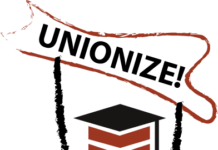From March 8-9, UW’s Muslim Student Association held its first innovation Ibtikar Summit. Students were invited to participate in the two-day long event involving workshops, guest speakers, and a pitch competition with a $5,000 prize pool. A total of 18 teams competed in the entrepreneurial challenge to address problems affecting the Muslim community. The three problem categories introduced were finance, disabilities, and mental health.
The summit was mainly funded through donations from community organizations, families, and students. It was created to inspire students to innovate unique solutions and enrich the lives of the people around them.
Local mentors attended on the first day of the summit to represent successful Muslim entrepreneurship in the community. They offered encouragement to competitors before the pitch competition started. Once competitors received their prompt, they were given a strict time frame to create a presentation.
One example of an innovation pitched at the summit was an anonymous virtual therapy service. It aimed to provide an affordable, accessible service and tackle the social barrier preventing many from seeking professional help.
In the disabilities category, one group pitched a device that would translate religious text into braille for individuals with visual impairments. Another pitched a service that would transcribe spoken language into ASL for those with hearing disabilities.
Many groups also pitched innovations to solve issues in the finance category. Since Islam prohibits usury, the act of charging interest on credit loans, multiple teams pitched concepts for interest-free loaning as a solution. This offers an alternative for Muslims who need credit in an economic system built on finance. “To buy a house, to get a loan, to get an education, to do anything in Canada you have to get a loan that bears interest and that’s not something we can do,” said Zafar Erkinboev, a competition participant. “So how do we make a system, develop something innovative that not only serves us as an interest-free solution, but also serves everyone else because no one else wants to bear interest as well.” Interest-free loans would benefit the increasing amount of Canadians struggling with debt from credit cards, car loans, mortgages, etc. Since Canadians who take on this debt are often “guaranteed to lose money because they have to pay back that extra interest,” said Humza, whose group pitched interest-free loans, adding this system is “something that breeds inequality.” These teams offered their ideas as ways of enriching the lives of both Muslims and non-Muslims in their communities.
Both participants and organizers were optimistic that the competition would reappear next year. The summit provided an opportunity for networking, meeting like-minded people, and helping the community. More information can be found on their website at https://ibtikarsummit.ca/ or on the organization’s Instagram: @uwibtikar.





























